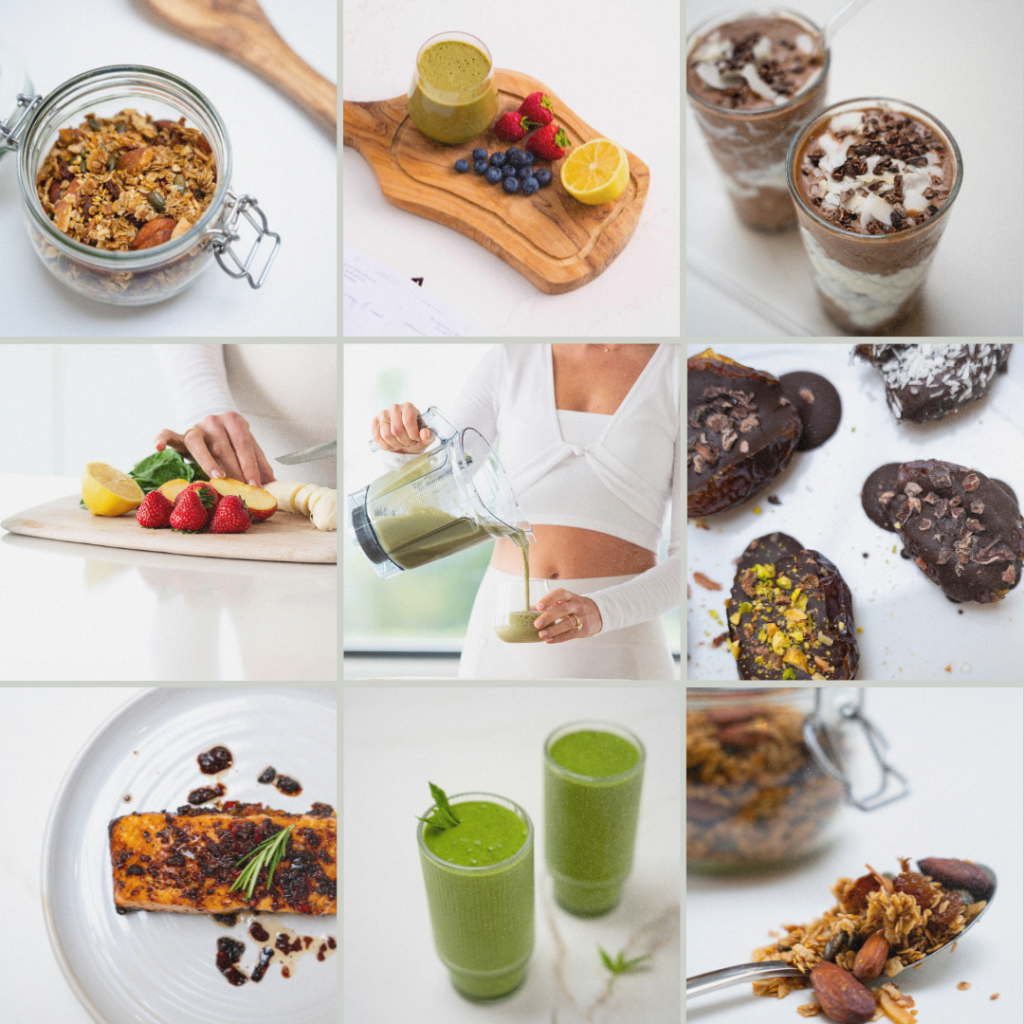Gut Health in Action: Practical Steps to Nourish Your Microbiota
09 Oct 2024
In our last blog, we explored why gut health is important and how our gut microbiota – those trillions of tiny bacteria – plays a huge role in keeping us healthy. Now that you have a solid understanding of why gut health matters, let’s move forward with the how. This blog will offer practical steps to help support a diverse and thriving gut microbiota.
We have spoken about the ‘friendly bacteria’ in our gut. What we need to consider are two things – firstly, how to increase the number of friendly guys living in our gut, and secondly how to feed these guys to make sure they thrive. That’s when we begin to use the language of probiotics and prebiotics.
- Probiotics are live bacteria that can help replenish and maintain healthy gut bacteria. These can come from fermented foods like yoghurt, sauerkraut, kefir, and miso (or through probiotic supplementation where appropriate)
- Prebiotics, on the other hand, are a type of fibre and the food for your gut bacteria. They’re found in fibre-rich foods like garlic, onions, fruit, vegetables and whole grains
Including both probiotics and prebiotics, alongside reaching your overall fibre target in your diet encourages your gut bacteria to thrive, and therefore an overall healthy gut.
We want to support many different types of friendly bacteria, and to do that, you need diversity in your diet to feed all these different bacteria types (or strains). We can add to your current diet without over-complicating things.
Historically, this is what your ‘5-a-day’ message encourages. Whilst this is a really positive starting point, our gut does need even more diversity across the week. Some new research suggests that aiming for 30 ‘plant points’ across the week is what’s required. I try not to get too bogged down by the nitty gritty, especially if you are just discovering more about gut health, but more-so on tangible what can we do to make a difference.

Small, Simple Steps:
- Probiotic Additions: Adding fermented foods like kimchi to salads, kefir to granola, or natural yogurt with fruit can introduce probiotics into your diet. Miso paste can be picked up in the supermarket and can be added to dressings to coat salmon or vegetables like aubergine. These foods are rich in live bacteria, supporting a healthy microbiota.
- Balance Your Plate: If you are already aiming for ½ your plate of fruit or veg, this is a win and a huge fibre boost.
- Mixed varieties: Using things like frozen fruit mixes, frozen mixed vegetables, trail mix, seed mix (I know Linwoods do some good varieties), canned mixed beans, or a mixed bag of salad. Using these means that you can have two to four different foods to boost diversity, but only have to reach for one ingredient when preparing meals. I then try to buy different mixes during the weekly shop to increase the variety by another level! (eg: last week I used a frozen summer fruits mix of blackberries, raspberries and currants, but this week I will pick up a bag of frozen mango for my breakfast smoothie)
- Stock Your Cupboards: Keep your cupboards stocked with non-perishable prebiotic sources like nuts (peanuts, cashew nuts, walnuts) and seeds (sesame seeds, linseed, chia seed) and grains/pulses (oats, red lentils).
- Add A Sprinkle:
Start to practice easy additions, and repeat to yourself ‘where can I add a sprinkle’
- At breakfast, a sprinkle of chia seeds could go into your porridge, alongside grated carrots and cinnamon for a take on carrot cake overnight oats. For the fussy kids in the house ground linseed is easy to hide in weetabix with a mashed banana. Even adding a small tablespoon of oats to a quick bowl of rice krispies too – there’s always a small addition you can make
- At lunch, could you swap white bread to brown bread? Could you add half a tin of chickpeas to your soup or salad?
- At snack time could you add some peanut butter to your sliced apple? Could you have a trail mix in your drawer at work to nibble on with a cup of tea?
- For your evening meal, most Asian dishes like curries or stir fries are easily elevated by a sprinkle of peanuts or sesame seeds as a garnish. Herbs and spices also can support gut diversity, so adding fresh coriander to a chilli con carne, or basil to a pasta dish. Mince based dishes or stews also are great to shake some lentils in during the cooking phase, and again ½ a tablespoon of linseed will not be noticed in a sauce or blended soup.
You may notice that these are all non-cook zero prep options, and really low effort ideas once you have your cupboards stocked. Supporting your gut doesn’t have to be time consuming or overwhelming. Building these habits makes supporting your gut health easier, and not another mental load to consider amidst our busy lives.
Final Thoughts
You might be wondering whether purchasing a probiotic supplement would be helpful now that we know how important our gut is. I believe that we should all be looking at food first. Feeding your gut with prebiotic and fibre-rich foods is key, although sometimes supplements can be useful, but are not required and often an additional unnecessary cost, for some can even exacerbate digestive symptoms. If you do decide to go down that route, some reputable brands include Optibac, Alflorex, and Symprove. You can trial a probiotic for 4-6 weeks but if no positive changes are observed, it is unlikely they are having an effect and there may not be a benefit in continuing.
Remember, it’s not about overhauling your diet all at once (which actually is not healthy and you might experience digestive discomfort if you change too much over night). Start with one small change, like trying to ‘add a sprinkle’ of some fibre to your evening meals. Alongside a slow and steady approach, it’s also really important to increase your water intake alongside dietary changes to avoid discomfort. Over time, these small steps will add up to a big difference in your gut health.
*If you are struggling to consume these fibrous/prebiotic foods without having tummy troubles, and frequently experience bloating, pain, or bowel issues but do want to support your gut health please reach out to a dietitian to support you with more tailored and individualised support. Some of the information above can be triggering for those who have IBS or other functional bowel diseases.

By: Lorna Ryan, CORU Registered Dietitian DI046177
Lorna is a CORU registered, FODMAP trained dietitian with a love for all areas of nutrition. With additional training in IBS, Lorna has strong interests in gut health and fostering a positive relationship with food. Lorna has worked in hospital settings in the early stages of her career, before gradually transitioning into management to blend her passions and is now managing a paediatric allied health professional clinic, Spot Therapy Hub in Sydney, Australia.


